Linda McMahon’s Metamorphosis: Ed Nominee’s Journey Mirrors the GOP’s Turn to Trump
She once voiced a desire to cut racial achievement gaps and said private school was for those who could 'afford it.' She’s changed. So has the party.
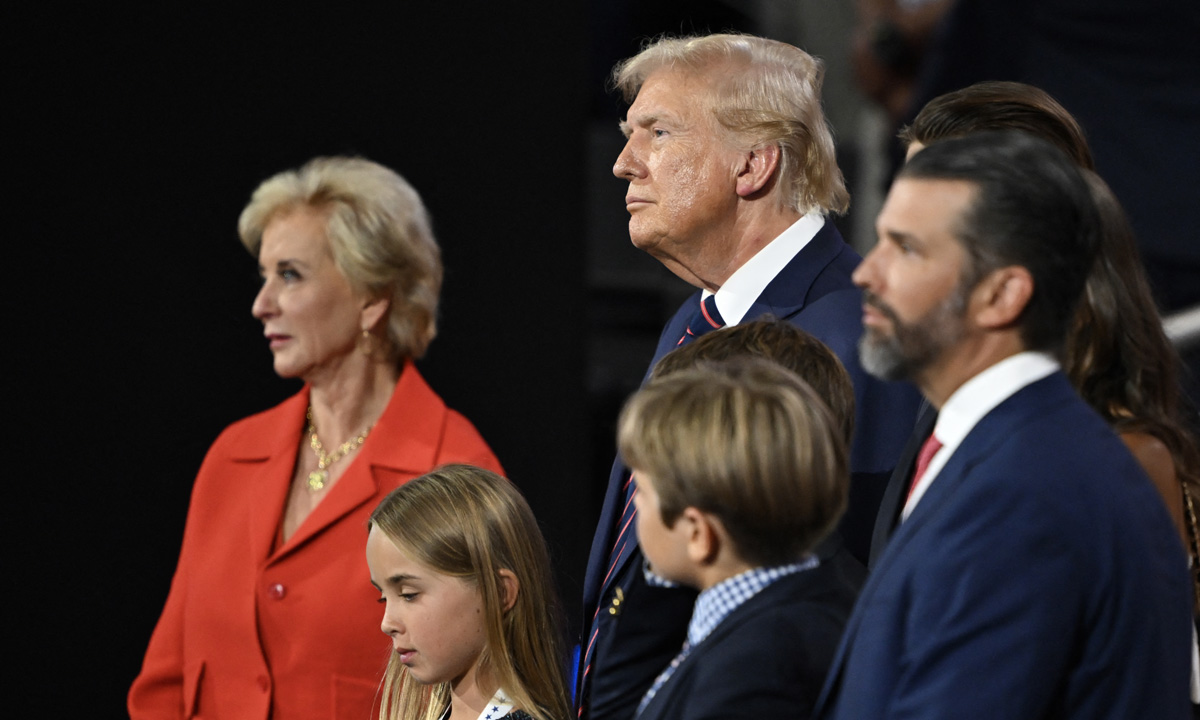
Get stories like these delivered straight to your inbox. Sign up for The 74 Newsletter
Clarification appended Nov. 25
Compared to others who have held the post, Linda McMahon, President-elect Donald Trump’s choice to run the U.S. Department of Education, has a resume thin on school expertise. She made that clear when she auditioned for her first education leadership job in 2009.
“I don’t come before you today as an educator,” she told a Connecticut legislative committee reviewing her appointment to join the State Board of Education. “I make no bones about that.”
She said her plans to teach French after college fell away when she became pregnant with her first child, Shane, according to a transcript reviewed by The 74. And she defended the place where she spent the bulk of her career, as head of a worldwide pro wrestling enterprise, even as one member called it a detriment to “the fabric of our society.”
But she also had strong opinions about the ills of American education — in particular, growing racial and socioeconomic achievement gaps — and what it would take to reverse them.
“I think that every child ought to have the opportunity for equal education,” she said. “That means that their teachers should be equally prepared to teach, that the curriculum ought to be the same across the board.”
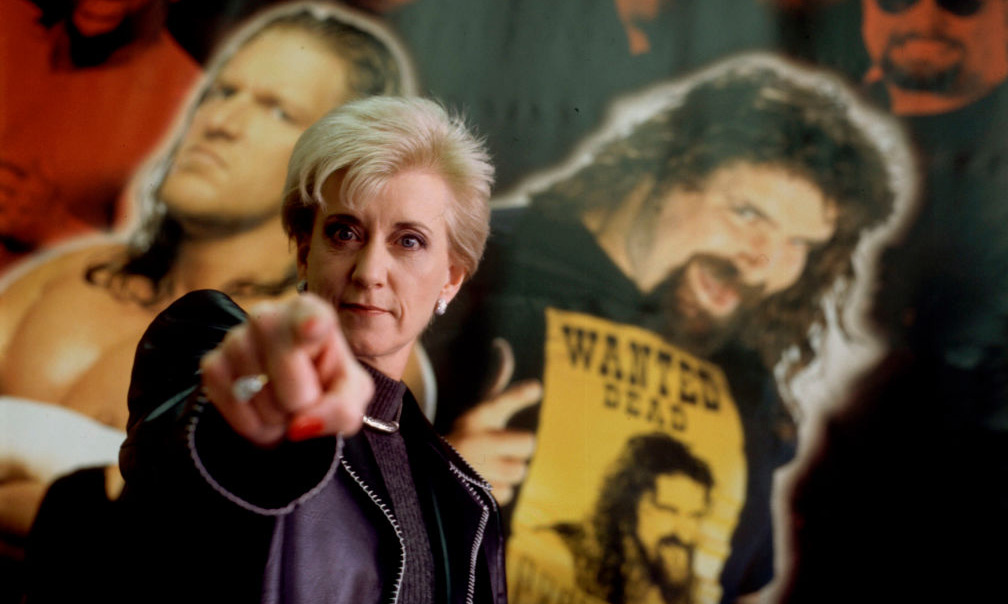
McMahon’s views fit squarely into the era’s GOP mainstream. Republican President George W. Bush, who had just left office, embraced the belief that the federal government played a critical role in uplifting students in low-income communities. That was the heart of No Child Left Behind, the landmark reform law that held schools accountable for reducing achievement gaps. She was a fan of public school choice, particularly charters, but considered private school the realm of families who could “afford it.”
Fifteen years later, McMahon’s nomination signals just how far the GOP has strayed from seeing the federal government as an instrument for improving education. She’s chair of a conservative think tank that seeks to eliminate progressive ideas in the classroom and says parents should be able to spend public funds on any school they choose.
“The Department of Education was really focused on substantive policy challenges, like teacher evaluation and persistent socioeconomic and racial achievement gaps,” said Patrick McGuinn, an education and political science professor at Drew University in New Jersey, who wrote a book on NCLB. “These problems all still exist, but now the conversation has just completely shifted to things like [transgender] bathroom access and book bans.”
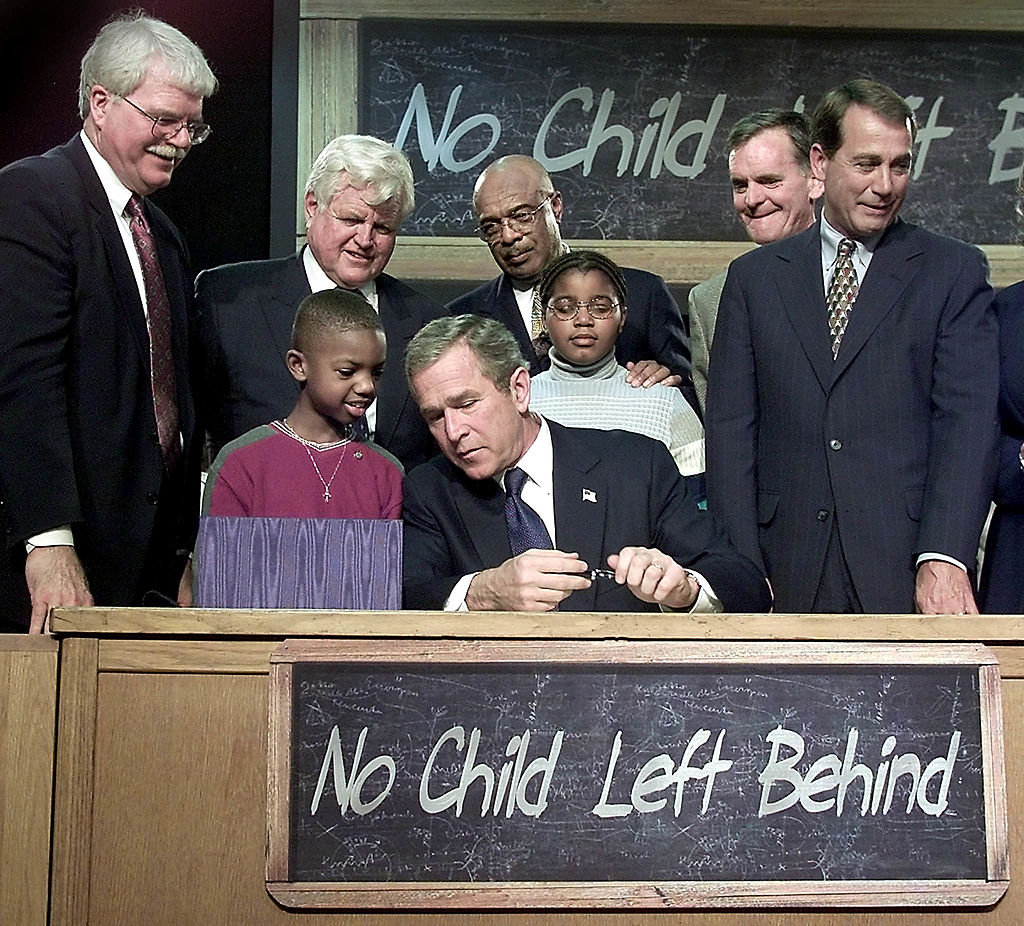
McMahon’s time on the board was brief, about a year — a moment that offers little insight into how she would approach the nation’s top education post. Some accused her of using her seat as a stepping stone to Congress, a perch she failed to reach in two separate bids. Others saw her leap into politics, including her role in Trump’s first administration, as a chance to escape the high-profile image of her estranged husband Vince McMahon, who built World Wrestling Entertainment, or WWE, into a $9 billion empire.
Whether her service on the state board matters to senators who will shepherd her confirmation remains to be seen. The fact that she erroneously stated that her degree was in education when she completed a questionnaire for that position might resurface.
To Louisiana Republican Sen. Bill Cassidy, the incoming chair of the education committee, her two years as head of the Small Business Administration could “obviously help.”
During her tenure, she promoted the 2017 Trump tax cuts, which benefited employers, and hustled to distribute disaster relief to businesses in the aftermath of Hurricane Harvey in 2017. She was a “quick study,” said Molly Day, spokeswoman for the National Small Business Association.
“She didn’t come … with a vast experience in the small-business world, but she got up to speed on what SBA does and why their programs are important,” Day said. But its budget, just over $1 billion, is a small fraction of the $238 billion allotted to the education department. “The two agencies are so vastly different, and I suspect the directive from the White House …will also be very different.”
Some senators will also question whether she’s fit to oversee an agency responsible for protecting students from sexual misconduct. In a lawsuit filed in October, she and her husband were accused of looking the other way while young boys working for WWE were sexually molested by a one-time announcer for the organization.
“A cabinet post could be seen as a way to cement her own legacy away from [Vince], especially given his recent legal issues,” said CarrieLynn Reinhard, a communications researcher at Dominican University in Chicago and part of a network of academics who study pro wrestling.
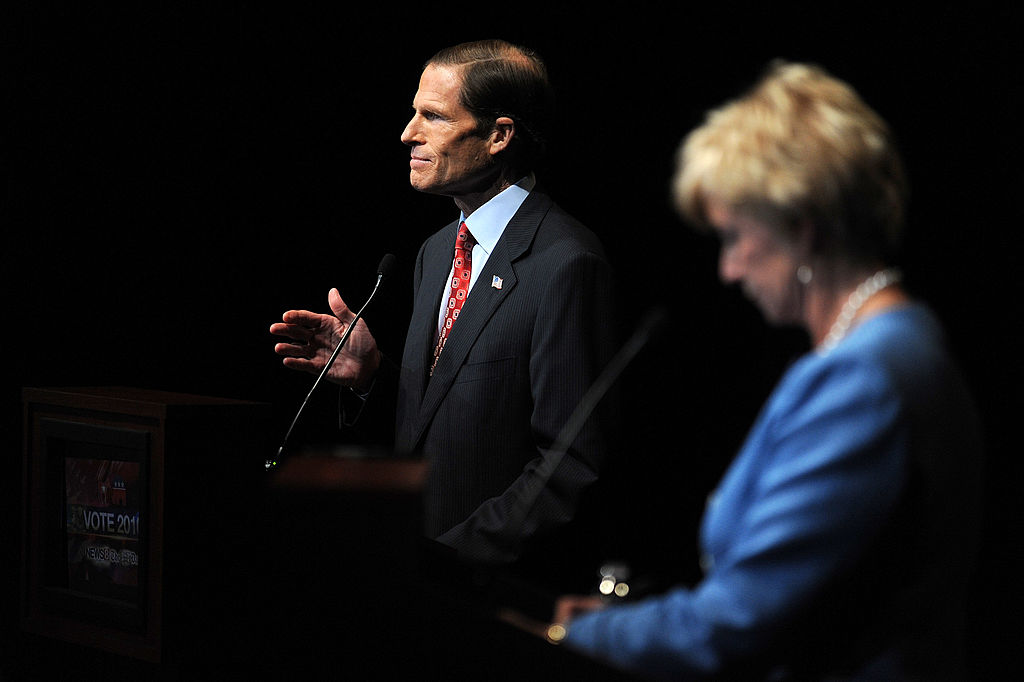
‘Lost trust’
McMahon, a leader of Trump’s transition team, donated over $10 million to his campaign, heading up a super PAC, America First Action, and shaping the agenda for a second term as chair of America First Policy Institute. Until recently, it was a lesser-known think tank, but its K-12 policy positions echo familiar GOP talking points: promoting universal school choice, tying fewer strings to federal funds and splitting the education department’s key functions across multiple agencies.
Trump has also nominated its founder Brooke Rollins to serve as agriculture secretary. And Laurie Todd-Smith, who leads the institute’s Center for Education Opportunity could be “in the mix for a position at the department” as well, said Heath Brown, an associate professor of public policy at the John Jay College of Criminal Justice. ”Her very recent statements about the department are in agreement with the longstanding views of conservatives.”
Shortly after the election, Todd-Smith reposted a thread on X about how to gut the department “down to the studs.”
Neither the Trump transition team nor the institute responded to requests for comment.
McMahon’s evolution tracks that of the GOP as a whole, from a party that joined with Democrats to give the federal government the power to hold schools accountable to one that is deeply partisan and mistrustful of intervention from Washington.
The Obama administration’s efforts to prescribe specific school reform policies contributed to the shift. The department’s Race to the Top competition, a $4.3 billion effort that pushed states to adopt Common Core standards and tie student test scores to teacher evaluations, came under frequent attack.
While on the Connecticut board, McMahon voted to apply for a grant from the Bill and Melinda Gates Foundation to help states compete for those funds. But times have changed. Bill Gates became the subject of debunked COVID conspiracies about implanting microchips through vaccines, and conservatives now accuse the foundation of promoting left-wing ideology in schools
To many GOP governors, those Obama-era policies demonstrated blatant government overreach.
“People did not like education, and the performance of their schools, reduced to test scores,” said Neal McCluskey, director of the libertarian Cato Institute’s Center for Educational Freedom. “And they did not like the federal government starting to dictate even what would be taught.”
The architects of NCLB say conservatives place too much blame on the department for flat and declining achievement. Sandy Kress, who advised Bush, said it’s “lazy thinking” to say there’s been no progress in student achievement since 1979, when the department began. Data shows there were both periods of growth on the National Assessment of Educational Progress as well as decline. Fourth grade math, for example, saw a steady increase in average scores between 1990 and 2009. Performance was flat for the next decade and then dropped after the pandemic.
“The department in and of itself isn’t much of a causal agent,” he said.
But the school closures and mask mandates that marked the pandemic only intensified feelings that officials in Washington were out of touch. Suddenly, conservatives’ calls to eliminate the department became more central to the GOP agenda.
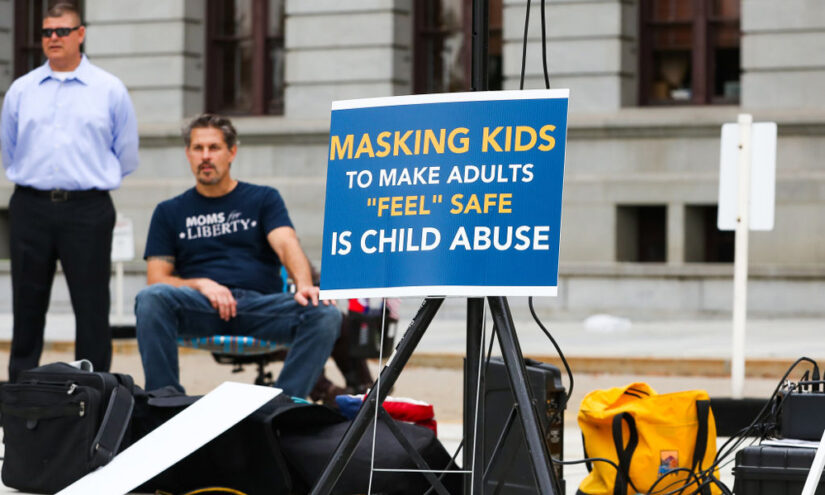
“It’s not about Republicans hating education. I think that’s often how it gets portrayed,” said Neeraja Deshpande, a policy analyst with the Independent Women’s Forum, a conservative organization. “It’s more that Republicans have lost trust in these institutions to do a good job of educating children.”
One reason the nation saw a rightward shift in this year’s election, including among Blacks and Hispanics, she said, was because parents in low-income minority communities questioned why their children’s schools were still closing for COVID outbreaks in early 2022. Families in wealthier neighborhoods, meanwhile, opted for private schools.
Remote learning gave parents a window into what students were learning — material that didn’t always align with conservative views. With many parents already reeling from months of remote learning, conservative groups like Moms for Liberty found a receptive audience when they said bureaucrats, from the top down, lacked transparency about “woke” curriculum, library books they deemed inappropriate for children and policies related to students’ gender identity.
Culture war battles also sparked a conservative backlash against diversity, equity and inclusion, which some blame for crowding out efforts to improve outcomes for minority students. The think tank McMahon chairs has slammed the Biden administration’s “whole-of-government” focus on equity and called for removing references to DEI in federal grants.
“The culture war attack on DEI has manifested itself into a disdain for anything that has to do with race, including talking about the very real disparities that exist in student achievement in our country,” said Stefan Lallinger, executive director at Next100, a progressive think tank affiliated with The Century Foundation.
The right’s solution to failing schools — what they often call “education freedom” — finds support among minorities. A poll from EdChoice, an advocacy group, shows at least three-quarters of Black parents favor vouchers and education savings accounts, which can be used for homeschooling or private school. Black families in Arizona and Georgia have taken advantage of their states’ private school choice programs to open and attend microschools where they think their children are better served.
But others are concerned that the push for vouchers will contribute to segregation. Families with more means can make up the difference between a $7,000 ESA, for example, and the full cost of private school tuition. A recent ProPublica investigation identified 39 North Carolina private schools, most of them predominantly white, that have received over $20 million in state voucher funds in just the past three years.
”It should not be controversial to say … that as a nation, we should be ashamed of racial segregation, economic segregation,” Lallinger said. “We used to be able to agree that those are not things that make America look good.”
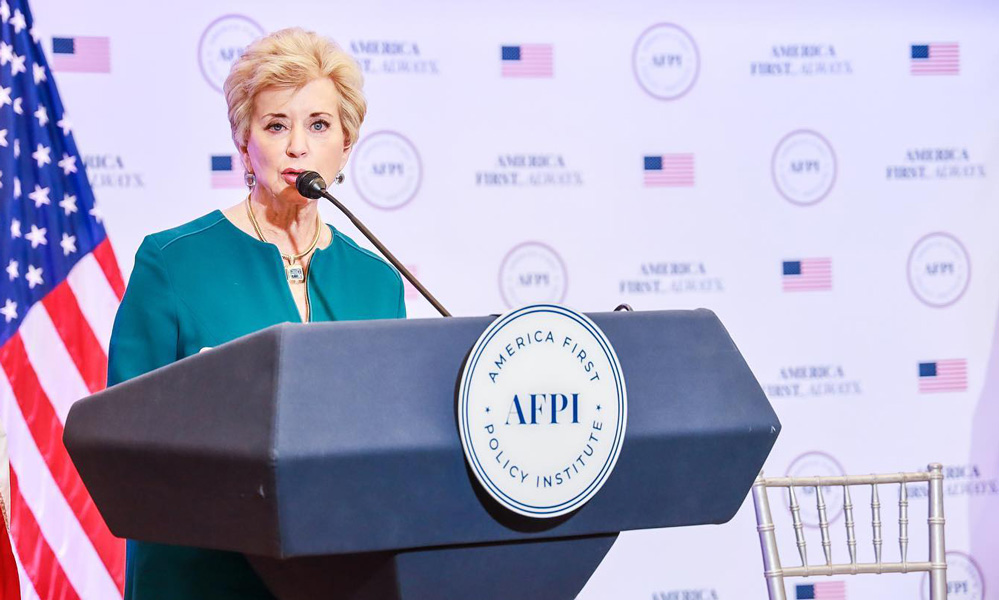
‘A mandate on the table’
In 2009, McMahon voiced the same concern.
“Segregation of schools is wrong and inappropriate and every child ought to have equal opportunity,” she told the committee voting on her appointment to the Connecticut board. A 1996 state supreme court decision in a long-running school desegregation case, she said, “clearly put a mandate on the table” to eliminate racial isolation for students.
Her and her husband’s philanthropic efforts have focused on programs serving poor and minority students. Since 2017, tax forms show their family foundation has donated over $1 million to Achievement First, which predominantly serves Black and Hispanic students. During her confirmation hearing in Connecticut, she described the “enthusiasm and respectful demeanor” of students at the charter network’s Amistad Academy, which scores above those in the surrounding New Haven district and showed more growth in reading last year than its peers statewide.
Other grant recipients include the Boys and Girls Club of Stamford, Connecticut, and a nonprofit named for Thad Bullard — also known as WWE star Titus O’Neil, who overcame homelessness to become a successful NFL football player before his switch to pro wrestling. Funding from the McMahons went toward an annual event where 30,000 students received backpacks, school supplies, haircuts and health checkups.

Phuong Nguyen, executive director of the Tampa, Florida-area Bullard Family Foundation, said she’s never met the McMahons, but their donation “helped us tremendously … by funding the largest back-to-school bash in the country.”
Projecting WWE’s service to the community — and its talent — was critical to McMahon, said Lowery Woodall III, an expert on the wrestling industry. Several years ago, he invited filmmaker Barry Blaustein, director of the 1999 documentary Beyond the Mat, to speak to his class at Millersville University in Pennsylvania, where he’s an associate communications and theater professor.
The behind-the-scenes look offered an honest portrayal of issues like steroid abuse and the physical damage wrestlers endure in a spectacle that, due mostly to intense lobbying efforts from the McMahons, isn’t regulated like pro sports. But what stuck in Woodall’s mind was how Blaustein described Linda McMahon’s reaction to the film. She complained that the footage missed the fun and camaraderie the “superstars” experience outside the ring.
“She had a very particular vision that was important to her to put out into the world about the company,” he said. “She was willing to overlook all of the very real issues that might exist … to support that vision.”

A decade later, she left WWE to enter politics, allowing her, Woodall said, to move “away from the shadow and the specter of Vince McMahon” and the company’s scandals. Those include allegations of sexual assault and sex trafficking against her husband, which led him to resign as head of TKO, owner of WWE, this past January.
Most recently, the nation heard from McMahon when she spoke at the Republican National Convention. In her five-minute speech, she didn’t mention schools once. But Kress and others hope she’ll use her influence with Trump to address stubborn achievement gaps, which only worsened during the pandemic.
“I hope she says, ‘Mr. President, we should believe in results. You got a lot of votes from African Americans and Hispanics, and you care about lifting people up,’ ” he said. “The move from where we were to where we are is not necessarily permanent. I think it’s well past time for the pendulum to swing back.”
The 74’s senior writer Kevin Mahnken contributed to this report.
Disclosure: The Bill and Melinda Gates Foundation provides financial support to The 74.
Clarification: An earlier version of this story contained a quote suggesting that Linda McMahon and her husband Vince might seek pardons from President-elect Donald Trump. A president can only grant pardons for federal criminal offenses.
Get stories like these delivered straight to your inbox. Sign up for The 74 Newsletter


